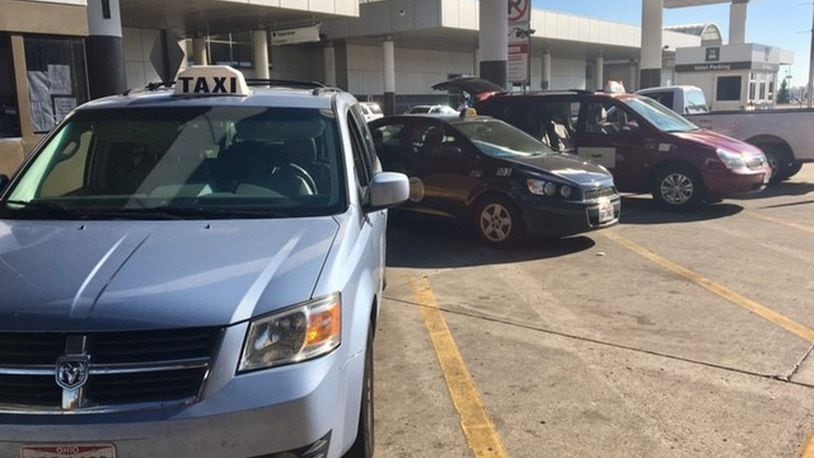Uber, the ride-sharing company, has already siphoned away much of the business at the airport, but this change would be a fatal blow to local taxi operators, Shannon Walters, a driver with Dayton Express Taxi, told Dayton commissioners at their regular meeting this week.
Cab companies spent significant sums updating their vehicles and making other upgrades to comply with recent changes to city regulations, and it is unfair that their investments may have been wasted and they face losing their livelihood, said Walters and other speakers.
“We still have drivers making car payments,” Walters said.
But the airport’s mission, said Dayton’s Aviation Director Terry Slaybaugh, is to provide sterling customer service to the 8,000 people who use the facility every day.
He said going to a single provider will make it easier to serve passengers who want and expect reliable, convenient and consistent ground transportation.
“We really just want to improve the experience somebody has when they get a taxi at the Dayton International Airport,” Slaybaugh said.
The city of Dayton has issued a request for proposals from companies that want non-exclusive rights to operate and manage cab service at the airport. Proposals are due by Dec. 14.
The city wants a single-source taxi provider that can be branded for airport service and that is more accountable and customer-friendly, because airport administration will have more control over the product, Slaybaugh said.
Uber and Lyft ride-sharing companies will continue to be allowed to operate at the facility.
Switching to one company will allow passengers to use social and electronic media, as well as a web-based application, to arrange, confirm and track their cab pick-ups, said Slaybaugh.
But a variety of taxi drivers who work at the airport are crying foul. They claim the city is making a big mistake by eliminating competition and putting many drivers out of work.
By and large, the drivers are foreign-born and cannot write or read English, which will severely limit their ability to find new jobs, Walters said.
The city passed tough new regulations on taxi operators, but they spent money to comply with the new dress code and replace any vehicles that were eight years or older, said Joseph Wagenbach, a taxi driver.
But what the airport is asking for now is unreasonable, he said.
The new taxi provider would have to spend hundreds of thousands of dollars to acquire the 20 vehicles the city mandates be a part of the airport fleet, and all cannot be more than 3 years old, and half must be handicap accessible, which are expensive to buy, Wagenbach said.
“We don’t know what to do — we’re asking you for help,” Wagenbach told city commissioners.
But the ground transportation industry is in a state of flux because of increased competition from ride-sharing companies, and the airport also must continue to evolve how it serves customers, Slaybaugh said.
Taxi drivers at the airport often only get about two fares during a 15-hour shift, which shows weakness in the current system, he said.
The airport for about 32 years used Yellow Cab Co. almost exclusively for taxi services, but opened the facility up to competition in 2000.
In 2015, the airport received more than $41,000 in revenue from taxi companies, related to the 21,030 trips they made that originated from the terminal, according to city documents.
About the Author
